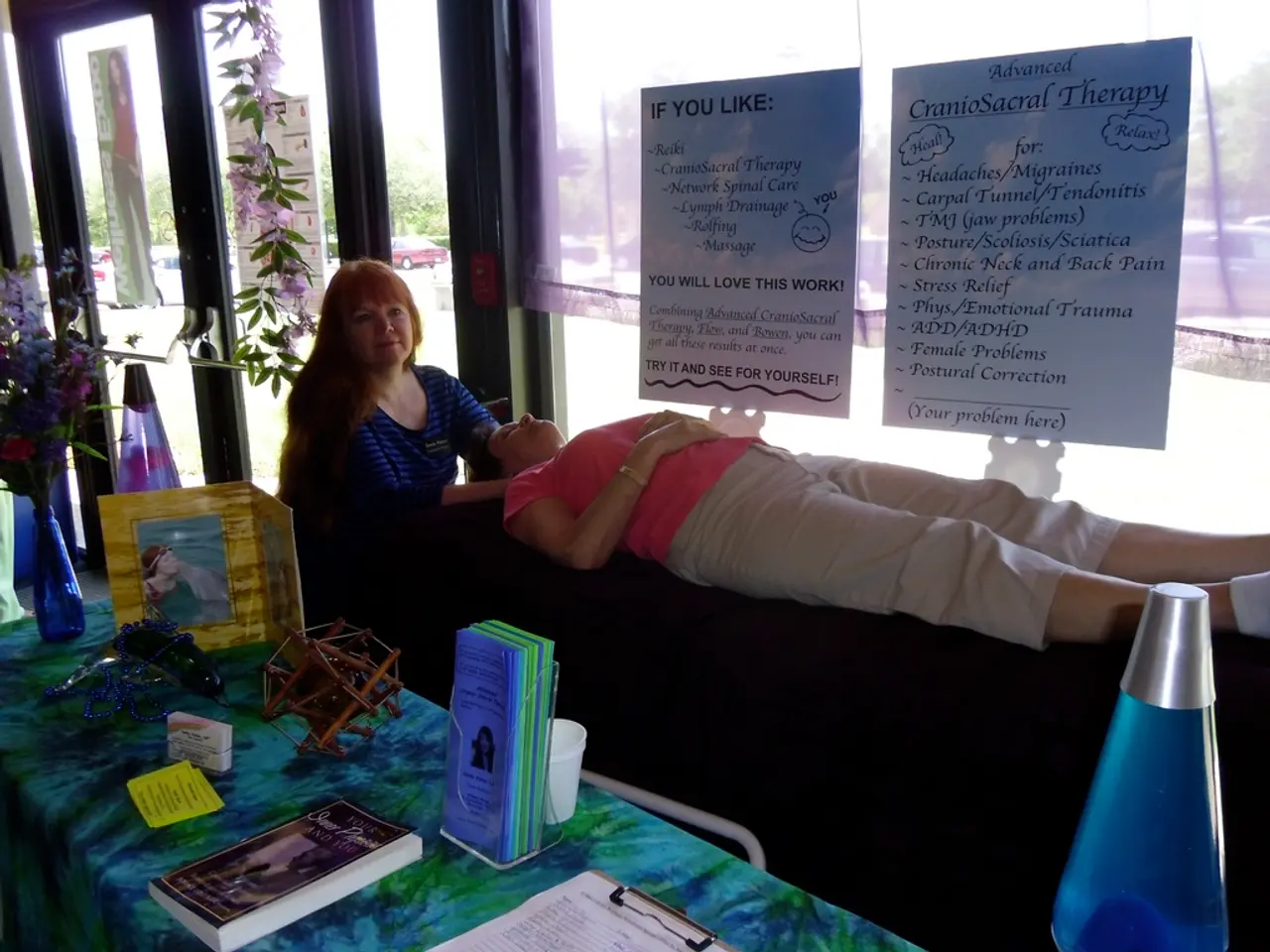Enhancing Mental Wellness: Strategies for Better Psychological Health
In a recent survey conducted by Cleveland Clinic and Parade, more than one-third of the 2,012 American respondents rated their current mental health as average or low[1]. The survey also revealed that almost half of mothers, or 42%, felt the same way about their mental health[1].
The survey respondents who rarely or never engage in activities to improve their mental health often cite being too busy or caring for a loved one as barriers[1]. However, experts like Dr. Kia-Rai Prewitt, a psychologist, emphasize the importance of self-care, even in the midst of busy work and personal responsibilities.
Dr. Prewitt suggests taking small windows of opportunity for self-care throughout the day to recharge and refocus[2]. This can be done by taking a five-minute walk, doing a 10-minute meditation, or practicing a guided imagery exercise. She also recommends taking a few minutes every hour to stand, which can help with circulation and sustain energy[2].
One effective strategy is to map out your perfect week by listing all commitments and blocking time for each, including self-care, ensuring realistic expectations of what can fit in seven days[1]. Starting with as little as five minutes per day or half an hour per week and making it a non-negotiable habit helps build consistency and long-term benefits[1].
Another approach is to dedicate a personal day weekly free from work and family duties to fully recharge and engage in nourishing activities like hobbies, rest, or nature walks[2]. Setting and protecting boundaries by learning to say no to additional tasks or requests that drain energy, thus safeguarding time for self-care and priorities[3] is also crucial.
Using natural gaps in daily schedules for quick rejuvenation practices like deep breathing, journaling, or a brief walk can be beneficial[4]. Incorporating physical movement regularly through short walks, stretching, or yoga can improve physical and mental health and manage stress[3][5].
Engaging in diverse self-care activities tailored to personal preferences, such as meditation, creative pursuits, digital detoxes, or simply enjoying comfort food or a bath, can refresh and recharge[5]. Even setting aside 30 minutes at the start or end of the day for a relaxing activity can be beneficial for mental health[6].
Activities like reading a book or lighting a candle can improve mental health for 63% and 48% of respondents respectively[6]. However, nearly a quarter of respondents didn't know where to begin in taking care of their mental health[1].
If daily activities become overwhelming, it may be time to ask for help or talk to someone about what's going on[6]. Different kinds of therapy can be helpful when dealing with mental health issues[7]. Claiming a full mental health day might not be possible or may cause additional stress for some, and taking shorter breaks throughout the day is more beneficial, according to 7 out of 10 Americans[6].
Anxiety, depression, and anger are common struggles cited by survey respondents[1]. It's important to communicate the need for self-care and build it into daily rituals[4]. Remember, self-care routines should be purposeful, productive, and planned out[6].
[1] Cleveland Clinic and Parade Survey, March 18-29, 2021. [2] Dr. Kia-Rai Prewitt, Psychologist. [3] Mayo Clinic. [4] Harvard Health Publishing. [5] American Psychological Association. [6] HelpGuide.org. [7] National Institute of Mental Health.
- Incorporating activities like music, meditation, or a brief walk into one's daily routine can be beneficial for mental health, according to 63% of respondents in a recent survey.
- Dedicating time for education-and-self-development activities like reading a book or engaging in creative pursuits can be a part of a purposeful self-care routine.
- Balancing work and personal responsibilities with prioritizing health-and-wellness practices, such as taking breaks for self-care, can improve both physical and mental health.
- In terms of self-care, involving oneself in food-related activities, such as preparing nutritious meals or enjoying comfort food, can contribute to overall health and personal-growth.




